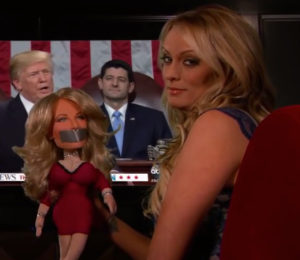12 months ago, Charles Harder’s most notable legal success was getting Jude Law’s face taken off a Canadian fireplace advert. Then he was better known as the man who brought down Gawker. But now as an unprecedented tussle between politics, the press and pop culture personalities rages on, who is standing in the centre of it all…? Charles Harder.
Harder Times
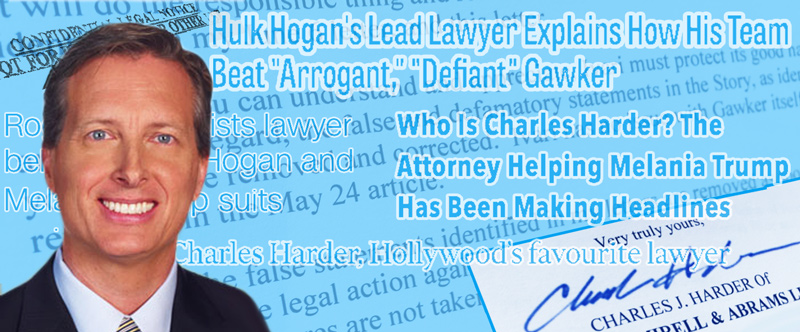
 Once upon a time, if you were a celebrity with a legal quibble that you wanted sorting out (and sorting out good) the lawyer you would call was Marty Singer.
Once upon a time, if you were a celebrity with a legal quibble that you wanted sorting out (and sorting out good) the lawyer you would call was Marty Singer.
Whether you were at the heart of a sex tape scandal, had attracted allegations of adultery, or been caught partying in a nightclub just hours after you’d told producers you were too sick with mercury poisoning to honour the last two months of your Broadway contract, then Marty Singer would see you right.
He became an industry legend, known as ‘Mad Dog’ Marty: famous for his brash, aggressive methods and his success with even the most contentious of clients.
However, in late 2014, Marty made an uncharacteristic misstep. In his efforts to defend the extremely disgraced Bill Cosby from over 40 accusations of rape and sexual assault, the Mad Dog slipped his leash.
He sent out a press statement to hundreds of publications which boldly branded Cosby’s most high-profile accuser, Janice Dickinson, a liar. Yet instead of solving his client’s problems, unsurprisingly, this only served to make things worse.
Janice Dickinson immediately served Cosby with a defamation suit – a sizeable garnish placed atop of Cosby’s already burgeoning bowl of shit – and she has been trying ever since to sue Singer for it too.
Shortly after, Cosby and Singer parted ways and very little has been heard from Singer since.
So who do the rich and famous turn to now, now that the Mad Dog has been neutered? Who can they trust to fire off multi-million dollar lawsuits at the drop of a hat with disproportionate levels of force?
The new white knight of the celebrity class: Charles J Harder.
A one-time protégé of Singer himself, Harder is probably best known as the lead counsel in the Gawker V Hulk Hogan case from earlier this year (a.k.a. The Case of the Newsworthy Penis). This is the once in which New York gossip blog Gawker was sued into literal oblivion for publishing a highlights reel of an anonymously sourced Hulk Hogan sex tape.
After 15 years of quietly working to keep celebrity’s faces off of unofficial goods, this sudden landmark victory propelled Harder into the big leagues. Now he’s taking calls from Silicon Valley billionaires, media executives, presidential candidates.
Harder currently finds himself sat in the most peculiar web of interwoven influence – one that encompasses Hollywood, media and politics in oddly equal measure; and one that could soon make him the most powerful pop culture lawyer we’ve ever known.
How does it all map out? Let’s take it step by step.
 Phase One: The $10 Million Suit
Phase One: The $10 Million Suit
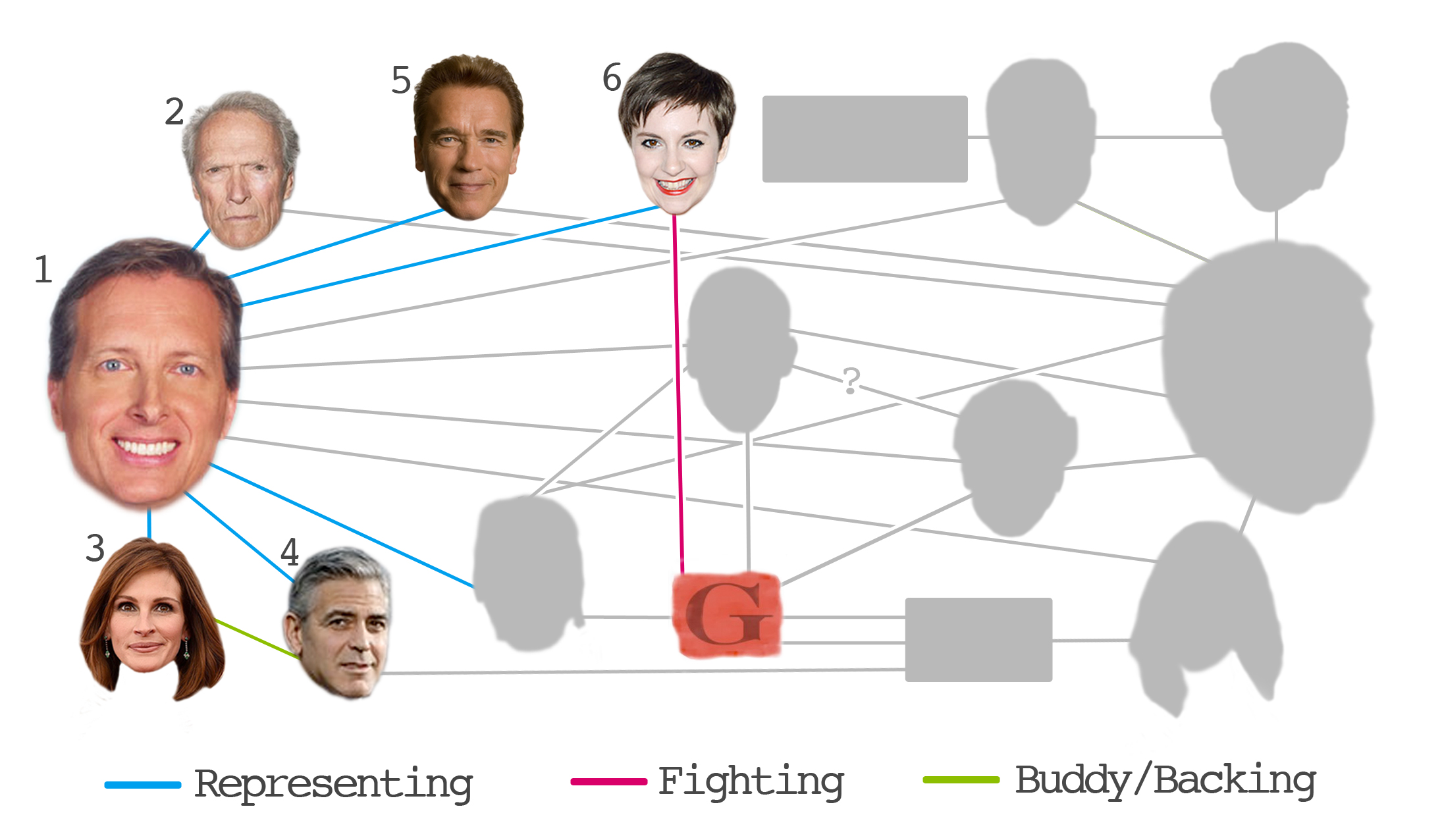
Charles Harder[1] first made his professional name in intellectual property law. Specifically, the image rights of celebrities in disputes concerning furniture, jewellery and home entertainment systems.
This wasn’t a formal specialism. It just so happened that a lot of Harder’s early successes were in similar sorts of cases in which celebrities happened to be suing the same types of businesses.
He represented Clint Eastwood[2] in a dispute over an advert for ottomans. He helped Reece Witherspoon, Halle Berry and Sandra Bullock when they fell foul of sneaky jewellery makers. He represented Liam Neeson, Bradley Cooper, Hilary Swank, Julia Roberts[3] and George Clooney[4] when a number of audio-visual companies used unlicensed pictures of them to promote their movie projectors.
And though he would occasionally branch out beyond these oddly limited fields – like the time he helped Jude Law claim damages from a Canadian fireplace company who had used an unlicensed picture of him on their website and Facebook page; or the paper he wrote for the Santa Clara Law Review about why Arnold Schwarzenegger[5] is not fair game for bobblehead makers – this, for the most part, was his bread and butter.
Dealing with the commercial side of celebrity IP infringements for a fistful of actors that you’d recognise on a red carpet is all very well and good. It makes you a nice living and will get you some favourable coverage in the trades, but dealing in the sort of six- and seven-figure settlements that work that brings doesn’t really make you a power player.
So how does one make the shift from the rather unglamorous work of protecting a celebrity’s image rights, to bankrupting media barons and shuttering up websites? That side of things started to change for Harder around late 2012 – just as he was looking to set up his own firm.
One of the notable cases he took on during this period of transition was for the writer, actor and constant general presence, Lena Dunham[6].
In 2012, Dunham was at the height of her powers. Girls was the hit new show of the season, she’d just starred in the latest Judd Apatow movie, and Random House had recently announced it was paying her $3.5million for her first book.
Gawker had somehow managed to get their hands on the 66-page book proposal that Dunham had put together for Random House, so they decided to publish it – in part to show what sort of ideas the publishing industry considers to be worth millions of dollars; in part to take a few cheap jabs at Dunham’s prose style.
It was no doubt humiliating for Dunham but as the most embarrassing sections were largely of her own composition, it didn’t really constitute a case of defamation. It was, however, a pretty clear infringement of her intellectual property rights – so her best chance at getting it removed was through IP law.
Who better to call then than the man who got Clooney, Roberts and Eastwood such hot results?
Harder duly fired off one of his letters on behalf of Dunham, and Gawkerreluctantly removed the offending passages. It wasn’t a hugely significant climbdown, but this wasn’t the last time that Gawker would be dealing with him.
In fact, the seeds that would eventually lead to Gawker’s ultimate destruction were already being sown.
Phase Two: The $100 Million Suit
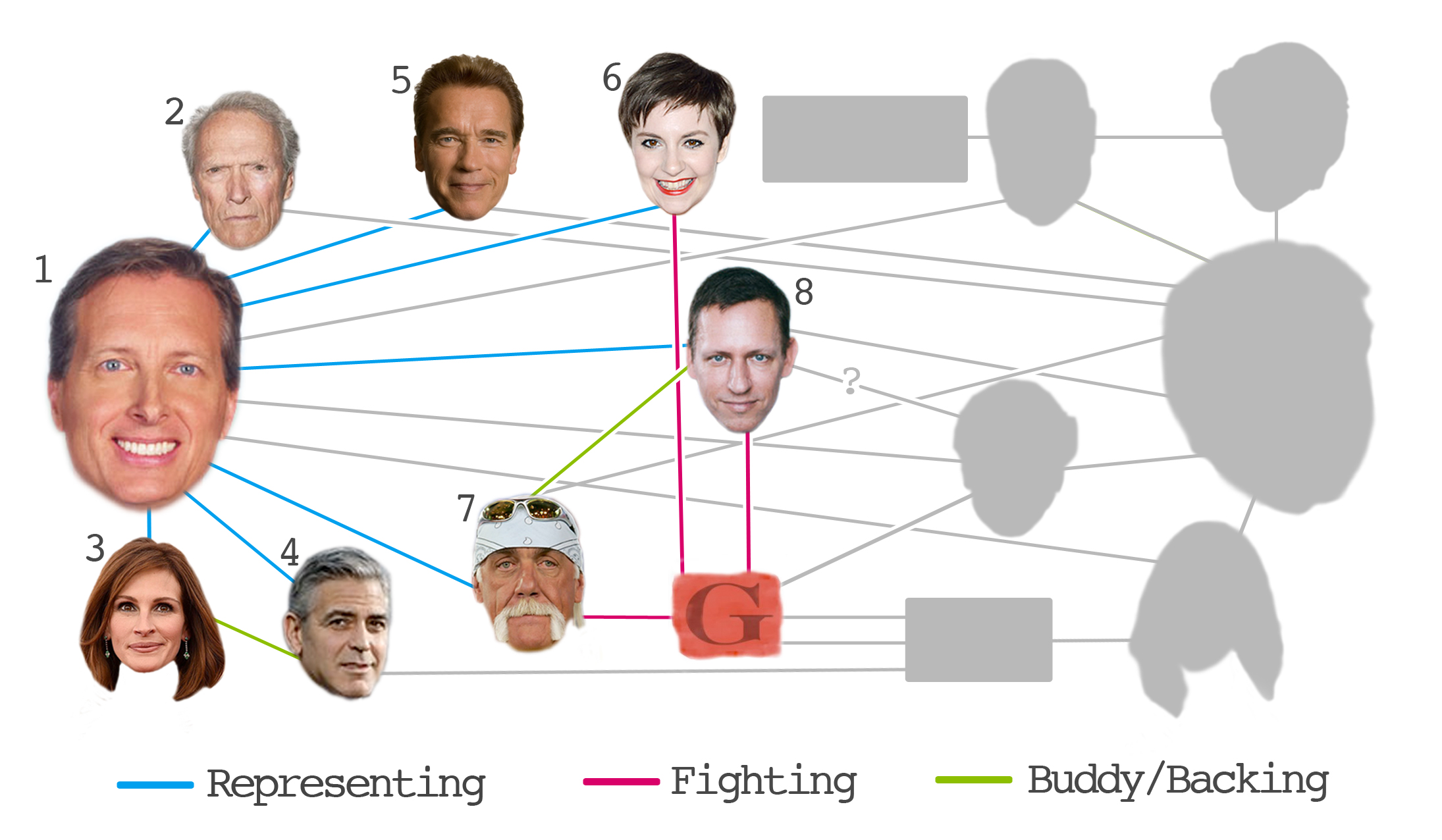
Two months before the Lena Dunham incident, back in early October 2012, Gawker posted a video to their site that didn’t being to them. A video which showed the image of WWE wrestler Hulk Hogan[7], the image of a woman named Heather Clem[not pictured], and the image of them both banging away like barn doors[absolutely, definitely not pictured].
The now infamous Hulk Hogan sex tape.
Originally it had been the job of Hulk Hogan’s personal attorney, David Houston, to get that video taken down but Gawker didn’t budge. (David Houston, you might remember, is the one from the court case who looked like he could have appeared on the cover of Take A Break, alongside the caption ‘I Spent $60,000 On Plastic Surgery To Make Me Look Like Donald Trump!’)
With Gawker refusing to play ball, citing their First Amendment right to freedom of expression, Houston decided to draft in some help. What he needed was someone who had a proven track record of forcing companies to remove unauthorised images of celebrities from places they shouldn’t be.
Someone like Charles Harder.
And so it came to pass that the very first complaint filed by the freshly-established law firm Harder, Mirell & Abrams firm was done so on behalf of Terry Bollea (professionally known as Hulk Hogan) against Gawker Media Ltd.
We’ve written plenty about what happened in that case – and millions more words have been published elsewhere – but the pertinent piece of information we need to revisit in this is the identity of the case’s benefactor.
You see, Hulk Hogan didn’t bankroll this lawsuit himself. He had some help. Help from a Silicon Valley billionaire who had spoken previously about his intense distaste for Gawker: PayPal co-founder, Peter Thiel[8].
Before this Hulk Hogan case, Peter Thiel’s wasn’t a name that cropped up very often (at least not in polite society) but ever since he indirectly bankrupted both Gawker and its owner Nick Denton, he suddenly seems to be everywhere.
On stage at the Republican National Convention as one of Donald Trump’s delegates. Holding forth about his interest in having the blood of young people transfused into his body to halt (or reverse) the ageing process. Investing in a start-up which forecasts how successfully a person could sue a company of their choosing.
But mainly he appears to have been acting as an unofficial legal consultant. Because after Charles Harder delivered him such an excellent return on his investment – bankrupting a big name in internet journalism for a mere $10m – it seems that Peter Thiel just can’t recommend him to enough of his friends.
 Phase Three: The $150 Million Suit
Phase Three: The $150 Million Suit
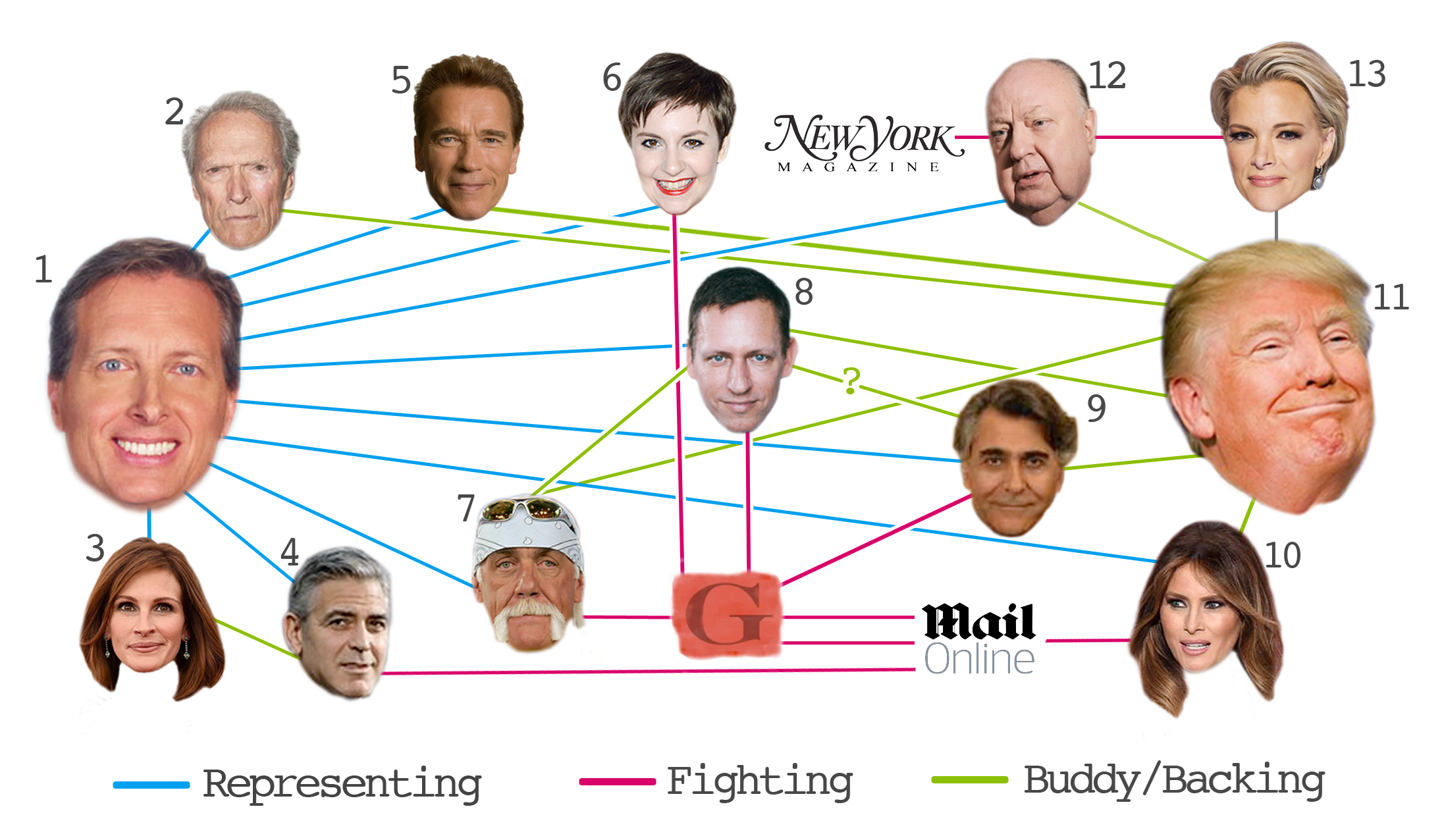
One of the final things that Gawker managed to publish before the curtain came down was an investigation into Donald Trump’s hair. Specifically, the possibility that Donald Trump’s hair is actually a $60,000 weave.
The piece, by Ashley Feinberg, was extremely thorough and genuinely well-received by a number of Pulitzer-winning journalists. (The writer of The Wire, David Simon, said it was “For real, the finest work Gawker has done… If our American press worked WMD this hard, no war.”)
It was also the focus of yet another legal letter from the desk of Charles Harder.
This one was sent on behalf of Edward Ivari[9] insisting that a number of claims that Feinberg made in her investigation were highly defamatory and damaging to him. And while you can understand why someone working in the hair extension business would be keen to distance themselves from whatever the fuck that greasy thatch on top of Donald Trump’s scalp is, something about the letter seemed suspicious.
Why was an unknown hair specialist suddenly hiring the same lawyer that had just delivered a deathly blow the company in question? And over something that was far more disparaging about the famously temperamental Donald Trump than it was about Edward Ivari?
Was this Peter Thiel in disguise again, trying to seal the deal? He was already rumoured to be bankrolling a number of other Harder-fronted lawsuits against Gawker – including that of Ashley Terrill and Shiva Ayyadurai.
Or was it someone else?
Things began to look even murkier when Harder, Mirell and Abrams announced their latest signing. Melania Trump[10], wife of the famously temperamental Donald Trump[11]. She was looking to sue the Daily Mail for an even larger amount than Hogan had taken Gawker for: $150m for implying that she had worked as an escort.
(An aside: Gawker and the Daily Mail are currently wrapped up in their own little lawsuit too – which would have been right up Harder’s alley, had he not been in active litigation against both publishers.)
Now Charles Harder appears to be writing letters to a third media organisation – this time on behalf of the recently disgraced (but enduringly disgraceful) former chairman and founding CEO of Fox News, Roger Ailes[12].
Ailes – who was forced out of the network in a blur of sexual harassment allegations – is having Charles Harder strike up a bit of correspondence with New York Magazine. Quite to what extent Ailes is going to challenge them is unclear yet, but Harder has written to inform NYMag that they are being keenly observed.
This, by the way, is the same Roger Ailes who is now working as a media consultant for the Trump campaign.
Also, the same Roger Ailes that Fox anchor Megyn Kelly[13](the debate moderator that Trump unsubtly accused of being on her period) told investigators had sexually harassed her as a junior reporter.
Obviously a man of Roger Ailes’ connections could easily find the number for Charles Harder without much assistance. It is entirely, entirely possible that he did so. But this little circle is tightening, and it is tightening hard.

Phase Four: The $10 Billion Suit?
At last count, that’s one of Donald Trump’s media consultants, one of Donald Trump’s delegates, and one of Donald Trump’s wives – all using Charles Harder to take (or at least explore) action against a large media organisation.
To add to that, Donald Trump has recently been opining publicly on whether or not he should sue the New York Times. He’s suggesting that his lawyers are itching to do it, but he’s currently holding them off.
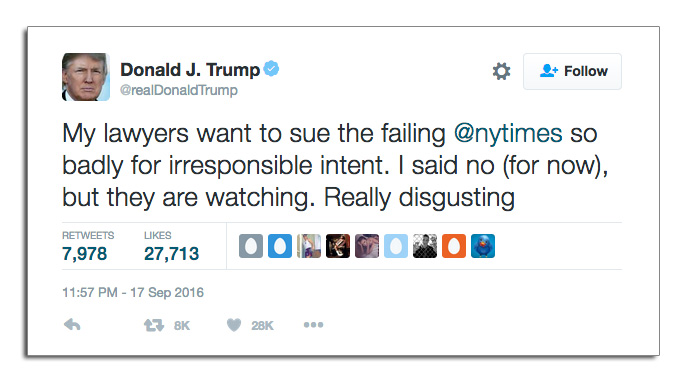 There’s nothing to suggest that any of the lawyers holding him off are Charles Harder, but if the two of them don’t start working a little more closely we’ll be incredibly surprised.
There’s nothing to suggest that any of the lawyers holding him off are Charles Harder, but if the two of them don’t start working a little more closely we’ll be incredibly surprised.
Of course, it makes sense for Harder. Donald Trump is one of the most litigious men in the business (the Washington Post reports that he has launch 1,900 lawsuits in the last 30 years – which is more than one every week FOR THREE DECADES). Naturally Harder would gravitate towards such a rich seam of business.
It makes sense for Trump too. Famous lawyers, generally, are few and far between. There are people who are well-known within the industry, sure. There are firms whose letterheads are more feared and revered than others. But a famous “That Guy” lawyer? They’re like gold dust.
In representing Hulk Hogan and taking down the seemingly undefeatable Gawker, Charles Harder has enjoyed a high profile that is not usually afforded to suits – and that sort of name recognition is a quality that Trump really responds to.
But if this merger does happen, the unholy trinity of Peter Thiel, Donald Trump and Charles Harder could have a devastating effect on politics and political reporting.
You see, we’re used to lawsuits like this from celebrities. From actors, from TV personalities, from pop stars – they’re constantly circulating. When we’re being uncharitable and flippant, we say it’s because they’re all a bunch of vain, self-important, self-aggrandising deviants who are out for every last cent they can squeeze. Truthfully though, the courts are a celebrity’s only real option when they’ve been maligned or cheated or ripped off – and celebrities draw more than their fair share of all that purely by virtue of being famous and glamorous.
Politics though? That’s a different ball game. In politics, you control the levers of power. Celebrities might have social influence, but politicians wield actual power.
That Donald Trump is unironically suggesting he might sue the New York Times for its coverage of him in his presidential campaign is a big deal.
That Donald Trump is talking out loud about changing libel laws when he gets to the White House is a big deal.
That Donald Trump’s nearest and dearest are involved in a number of Harder-fronted suits raining down hard on the press for relatively minor issues is a big deal.
So if he makes it to the White House, and he brings his delicate Hollywood ego with him, we can expect to hear a lot more from Charles Harder.
Just in fewer and fewer publications.



